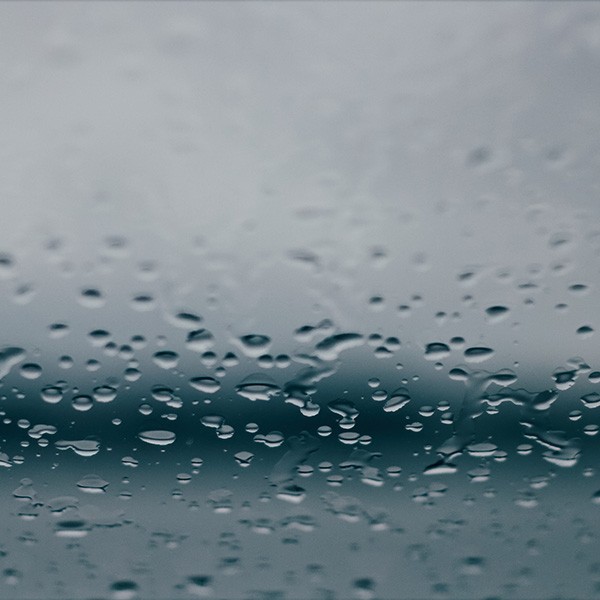Flood

I am halfway there when I see the cars turn back.
Rain bounces off the road, drums on the roof,
a lunatic percussion. The world has deliquesced
to edgeless blocks of muted colour. Meadowhall’s
knee-deep in river-water; cranes paddle
beside the M1; sirens buzz like wasps far off.
I crawl through silver sheets that spread like angel wings,
curling over the windscreen.
He first takes the hills, where country lanes dissolve
in muddy cataracts. Village houses in the valley
fret as Dam Flask, Agdon, Strines, Dale Dyke
swell higher. The fractured veins across the moors –
now sand and grit and stone with chunks of asphalt
slithering down their flanks – reveal the land’s bones.
Trees raise their arms from lakes where fields once lay.
He takes the road back to the city.
They crest the bridge, then stop. The River Don
has shaken off its banks and spilled into a mere,
drops recoiling off its oily surface. Several cars
are stranded as the sun begins to set. Local radio
tells people: stay indoors. Voices fluttering in and out.
The trail of cars backs up. Later, waiting, they’ll
watch newsfeed on a phone:
The Wicker Arches now rise from a river.
The current’s fingers knock us off our feet,
one person dead. We feel dislocated – haven’t noticed
slipping through the glass. I’ll watch the hectic image
on the news: Ulley Reservoir. Clammy hands pressed
against its cracking dam, a village in its path, a power station.
Desperate pumping and diverting,
shoring up and praying. It will seem unreal, film
from another place, like someone else’s story.
Damp smell of flooded basements. Cold wind
lingering over wet skin. Tomorrow, our local park
will be a pond, dry-stone walls breached, sodden
bungalows and gardens, ducks swimming down the high street.
Tomorrow, the people
in the village below Ulley will breathe freely, rain
stopped in time, waters edging back.TV will show
the folk of Tinsley and Catcliff rescuing their pets,
wading through a sea where children’s toys and garden chairs
bob and drift. Tomorrow, the goyts will flow more freely,
Rivelin and Loxley, Don and Rother will regain their tempers.
Tomorrow, we’ll begin to dry out –
And no one’s thinking, as the milksop sky revives,
colours firm up, soil skins over, and the dislodged world returns:
what happens when it rains again?

